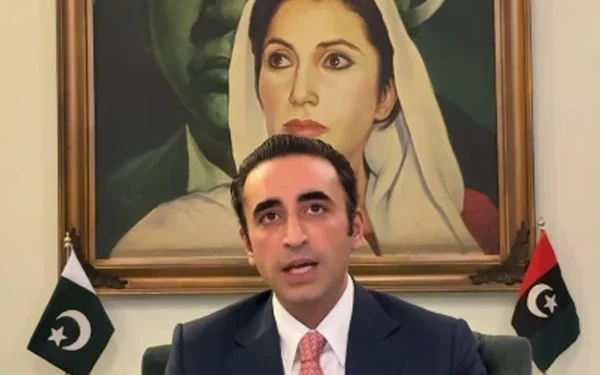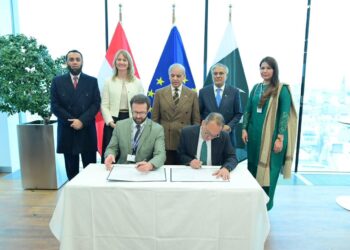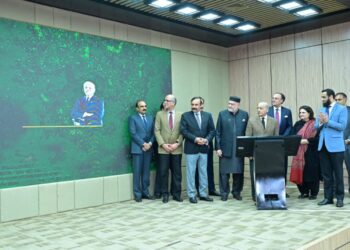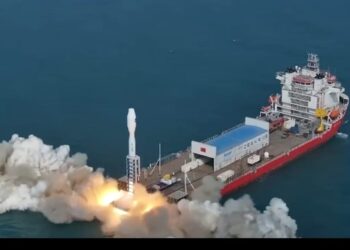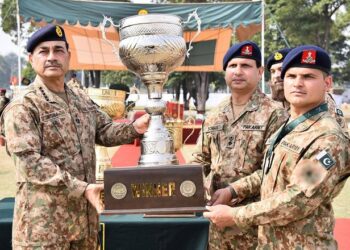Islamabad – In a high-profile interview with Indian media, Pakistan Peoples Party (PPP) Chairman Bilawal Bhutto Zardari strongly criticized the Indian government for allegedly spreading misinformation about the Pahalgam incident and misleading its citizens during periods of heightened Indo-Pak tensions. He emphasized that Pakistan itself is a long-time victim of terrorism and has made significant sacrifices in the fight against extremism.
Bilawal’s remarks come in the backdrop of India’s continued accusations against Pakistan for harboring and supporting militant groups targeting Indian interests—especially in Jammu & Kashmir and during high-profile terror events. The PPP chairman rejected these allegations as unfounded and politically motivated, offering historical and geopolitical context while calling for cooperation between the two countries in combating terrorism through dialogue and mutual accountability.
📰 India Lied to Its People Over Pahalgam Incident: Bilawal’s Strong Rebuke
Bilawal Bhutto Zardari began his interview by challenging the Indian narrative on the Pahalgam attack, in which Indian authorities accused Pakistan of involvement.
“India lied to its people about the Pahalgam incident. It spread disinformation to keep its population in the dark rather than informing them of the truth,” he said.
He argued that Pakistan, being a major victim of terrorism itself, had no role in the incident. According to him, if Pakistan had been involved, modern technology like satellite imagery and surveillance systems would have provided irrefutable proof—something India has not presented to the global community.
🕊️ Pakistan’s Stance on Terrorism: Victim, Not Perpetrator
Addressing accusations that Pakistan allows terror groups to operate within or from its borders, Bilawal countered firmly:
“Pakistan does not allow any terrorist group to operate either inside or outside the country.”
He further emphasized that Pakistan has been fighting terrorism for decades and has made heavy sacrifices:
- Over 92,000 Pakistani citizens have died due to terrorism.
- In just the past year, Pakistan witnessed more than 2,000 terrorist attacks, with 1,200+ deaths.
- This year could potentially be Pakistan’s bloodiest if the current trend of violence continues.
He stressed that as someone who has personally lost his mother, Benazir Bhutto, to terrorism, he deeply understands the pain and devastation caused by such acts.
📜 Historical Context: From Cold War to the War on Terror
To provide a broader perspective, Bilawal explained how the global narrative around freedom fighters shifted post-9/11. He stated that during the Cold War, many militant groups were supported and even trained by international powers—including the U.S.—to fight Soviet forces in Afghanistan.
“These fighters were once considered heroes. But after 9/11, the same groups were declared terrorists. Pakistan, unfortunately, became entangled in this legacy,” he noted.
He added that the roots of many current terror groups stem from this Afghan conflict. These entities later mutated into Al-Qaeda and other jihadist outfits, many of which turned their sights toward Pakistan itself.
⚔️ Pakistan’s Anti-Terror Efforts: From Waziristan to FATF
Bilawal highlighted successive governments’ efforts to combat terrorism through military operations and legislative reforms:
- Operation Rah-e-Nijat in South Waziristan launched under the PPP government following Benazir Bhutto’s assassination.
- Zarb-e-Azb and Radd-ul-Fasaad operations in North Waziristan initiated by subsequent governments.
- Implementation of the National Action Plan (NAP) to dismantle terror networks and cut their funding sources.
He also mentioned Pakistan’s cooperation with the Financial Action Task Force (FATF), stating:
“We have informed FATF about the organizations India has concerns with. Actions have been taken, and the international community has verified our efforts.”
More than 2,000 individuals and organizations have been declared proscribed under the Anti-Terrorism Act, according to Bilawal.
🔍 Pahalgam Attack: Pakistan Offered Transparency, India Refused
Referring again to the Pahalgam attack, Bilawal criticized India’s refusal to allow an international and impartial investigation into the incident.
“We had nothing to hide. Pakistan was ready to cooperate with any transparent probe. But India declined.”
He questioned the Indian government’s failure to conclusively identify the attackers, their nationality, or any satellite or forensic evidence linking them to Pakistan—despite India’s claims.
🧾 On Mumbai Attacks: Pakistan Urges Indian Cooperation in Trial
When asked about the 2008 Mumbai attacks, Bilawal reiterated that the case is under trial in Pakistani courts and criticized India for not participating:
“We’ve repeatedly asked India to present witnesses and join the legal process. How can we reach a verdict without evidence and testimony?”
He expressed his desire for justice for the victims and urged India to work cooperatively to ensure a fair judicial outcome.
🚆 Samjhauta Express Attack: 40 Pakistanis Killed, No Accountability
Bilawal also highlighted the 2007 Samjhauta Express bombing, in which 40 Pakistanis were killed on Indian soil. He criticized the Indian government for failing to convict any perpetrators, and altering confessional statements of the accused over time.
“We cannot overlook the role of Hindu extremist groups in such acts of terror. Just like Mumbai, justice must prevail for Samjhauta victims too.”
🔐 Kulbhushan Jadhav and Indian-Backed Terrorism in Pakistan
Bilawal pointed to Kulbhushan Jadhav, an Indian Navy officer arrested in Balochistan in 2016 and convicted for espionage and terrorism.
“His capture proved that India was involved in subversive activities in Pakistan. We never used him for revenge, but rather upheld legal processes.”
He also cited recent attacks like the Jaffer Express bombing and the Jauhar attack, claiming links to Indian intelligence agencies.
🌍 Terrorism Is a Global Problem, Not Just Pakistan’s
Bilawal insisted that terrorism should be viewed as a global crisis, not just a bilateral issue between India and Pakistan:
“Using terrorism as a political tool only prolongs conflict. True resolution requires sincerity, not finger-pointing.”
He added that while Pakistan faces real and ongoing threats, these must be tackled in a collaborative international framework.
🤝 Vision for the Future: Dialogue, Cooperation, and Peace
Concluding the interview, Bilawal emphasized the need for India and Pakistan to resume comprehensive dialogue:
“I want to see a day when India and Pakistan sit across the table and discuss terrorism, Kashmir, water, trade—everything. Only through talks can we eliminate the root causes of these issues.”
He reaffirmed that cooperation, not confrontation, is the only way to secure peace and justice for both nations and the broader region.
















